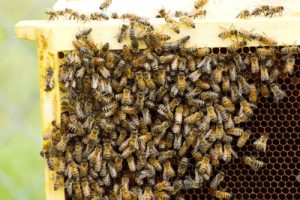 Can we have human health if our domesticated animals, wildlife, plants, and all nature are unhealthy, polluted, poisoned, weak and struggling? The answer seems to be NO. Climate Change “…coupled with a species-extinction crisis, habitat and soil degradation, pollution, extensive destruction of forests and coral reefs…” are all leading to our current health crisis.
Can we have human health if our domesticated animals, wildlife, plants, and all nature are unhealthy, polluted, poisoned, weak and struggling? The answer seems to be NO. Climate Change “…coupled with a species-extinction crisis, habitat and soil degradation, pollution, extensive destruction of forests and coral reefs…” are all leading to our current health crisis.
These views emerged in a conference in October 2019, attended by 200 experts, which generated a call to action called The Berlin Principles. These 10 principles say basically that if we are to prevent future and worse pandemics, we must recognize and support the essential health links between humans, all other beings including microbes and our entire planet. We must support biodiversity which is critical to the infrastructure of life, health, and well-being on our planet. And this understanding must develop into strong institutions based on robust science and into policy and action. We must recognize that our decisions about our use of land, air, sea, and fresh water directly impact the health of humans, animals and ecosystems. When ecosystems are altered, becoming less resilient, we become vulnerable to more diseases.
Therefore, we must invest in a healthy natural infrastructure and fund the surveillance and protection of healthy ecosystems. (See One World One Health and Science Direct.)
COVID-19 has shown us the huge cost of inaction caused by the disconnect between science, economics, and politics. Taking the perspective of One Health gives us humans both the power and the responsibility to take on this huge problem at the root level.
 We might ask ourselves: Why does the USA, the richest country in the world, lead the world in coronavirus cases and deaths? With only 4% of the world’s population, we have 25% of all cases and 20% of all deaths. This cannot be blamed on mismanagement alone. Our government has for years favored business profits over public health and environmental health. For example, the EPA website warns that glyphosate (active ingredient in Roundup) at 700 parts per billion can cause “problems with kidneys or reproductive difficulties” and yet 700 ppb is the permitted level in U.S. tap water. Only .1 ppb is allowed in European Union tap water. Roundup also causes many problems with fungi, bacteria (like in our guts), kills insects, birds and in general undermines the health of our planet. It shows up in baby food and beer. This is one example of a poison in our ecosystem that is leading to the poor health in our nation and in our world.
We might ask ourselves: Why does the USA, the richest country in the world, lead the world in coronavirus cases and deaths? With only 4% of the world’s population, we have 25% of all cases and 20% of all deaths. This cannot be blamed on mismanagement alone. Our government has for years favored business profits over public health and environmental health. For example, the EPA website warns that glyphosate (active ingredient in Roundup) at 700 parts per billion can cause “problems with kidneys or reproductive difficulties” and yet 700 ppb is the permitted level in U.S. tap water. Only .1 ppb is allowed in European Union tap water. Roundup also causes many problems with fungi, bacteria (like in our guts), kills insects, birds and in general undermines the health of our planet. It shows up in baby food and beer. This is one example of a poison in our ecosystem that is leading to the poor health in our nation and in our world.
Bayer says it will pay more than $10 billion to settle thousands of lawsuits from people alleging that their cancers were cause by Roundup, the company’s glyphosate-based herbicide.
The Sierra Club
